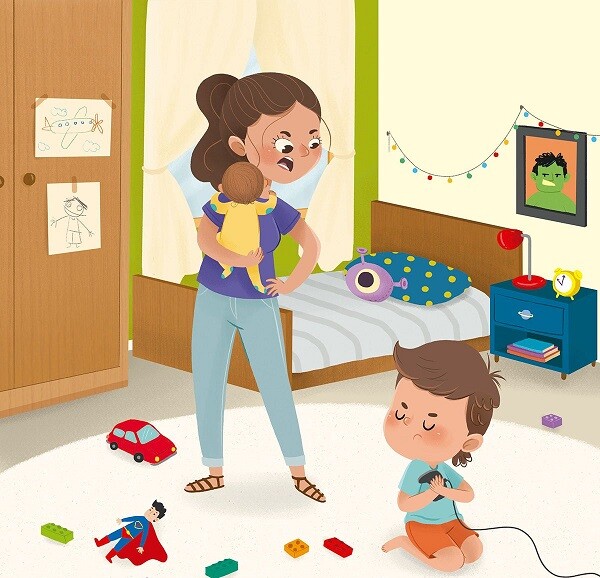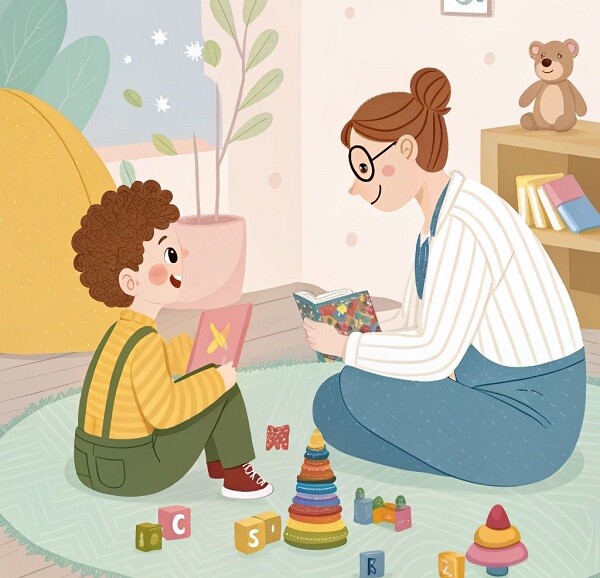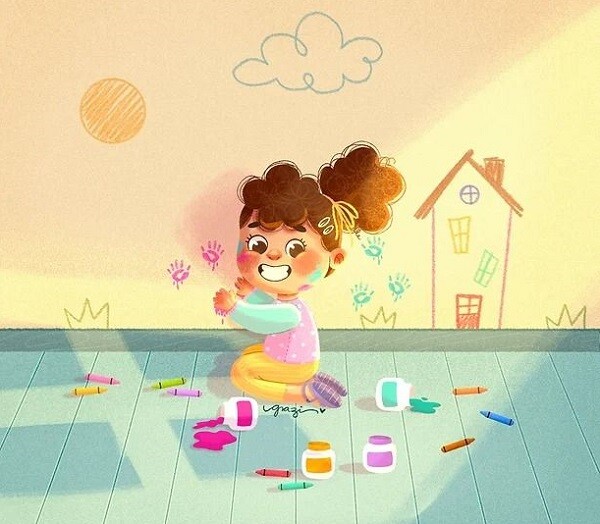While being a supermom can bring a certain sense of reassurance, it can also hinder your child’s independence.


Why do children of overly diligent mothers become more “helpless”?
In reality, the more diligent a mother is in these 3 areas, the harder it is for her children to develop essential life skills.
Over-Interference: Becoming Your Child’s “Jack-of-All-Trades” Consultant
The scene of a mother worrying and interfering too much may sound familiar: “You got that formula wrong!” “That’s not how you do the second step!” Or, before going out, she reminds her child: “Did you drink water? Do you have your pen? Did you bring your coat?” These reminders, although driven by love and protection, can unintentionally limit your child’s space for learning and growth.
Reducing your child’s opportunities to make mistakes is one of the main reasons they lack problem-solving skills. If children are not allowed to experiment, make mistakes, and learn from them, they will struggle to develop independent thinking and problem-solving abilities in the future.
Moreover, when children are constantly guided and controlled, they may become dependent on adult guidance instead of developing their decision-making skills.

Limiting their chances to err is a primary reason for their lack of problem-solving abilities.
Forced Feeding: A Packed Daily Schedule
Parents often instruct their children: “Memorize vocabulary over breakfast, do math before lunch, and study three more subjects after school…” Every minute and second of their lives are precisely allocated, and playtime is considered a waste of time.
When learning becomes overwhelming, children may develop a dislike for studying and look for ways to avoid it, or they may focus solely on grades without understanding the true value of the knowledge and skills they are acquiring.
Anxious Supervision: Living in Fear of “What If…”
“What if my child falls behind?” “What if their classmates outperform them?” This anxiety can envelop the entire family. When a child answers a question incorrectly, the mother’s face instantly becomes stern…
In reality, anxiety is contagious. Children start to doubt themselves: “Am I stupid?” They gradually lose the courage to explore and become hesitant to try new things.

Solutions for the Smart “Lazy” Mom
“Lazy” doesn’t mean neglectful; it means strategically stepping back and letting your child take the lead.
Replace “Let Me Do It for You” with “Give It a Try”
Professor Li Mei Jin once said: “The biggest regret is that children don’t know their potential.”
Therefore, parents should create opportunities for their children to practice, experience, and grow.
For instance, if your child asks, “Why is the sky blue, mom?” guide them to perform a simple experiment. Give them a cup of water and a blue ball, and say, “Try putting it in there and see what happens.”
When your child washes the dishes and spills water on the floor, praise them for their effort and then show them the correct way to do it.

Create opportunities for your children to practice, experience, and grow.
Let Natural Consequences Do the Teaching
If your child procrastinates on their homework, instead of scolding them, apply a gentle but effective rule:
– Remind them three times.
– Instead of lecturing, say, “You are responsible for explaining to your teacher why you didn’t do your homework.”
Responsibility comes from taking ownership, not from nagging. Children need to face the consequences to learn the value of self-reliance and discipline.
Turn Mistakes into Gifts
– When your child falls, pause for three seconds before offering help: “Try getting up by yourself. I’m here if you need me.”
– Instead of saying, “Why did you make a mistake again?” ask, “Can you guess why your teacher asked that question?”
With this parenting approach, the brain becomes 30% more active when making mistakes. Mistakes sharpen our thinking.
A study by New York University found that for every 10% reduction in parental intervention, children’s problem-solving abilities improved by 24%.

Children need to experience consequences to understand the value of self-reliance and discipline.
The educator Montessori said, “Education is not filling a bucket, but lighting a fire.” When parents stop providing all the answers, children will have the opportunity to develop and take responsibility for their lives. When they learn to stand on their own, they gain the confidence to face life’s challenges.



































